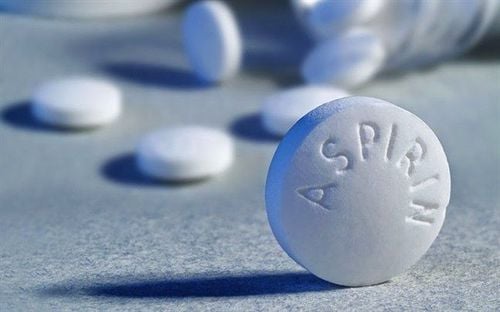This is an automatically translated article.
According to the latest report from WHO, the incidence of cardiovascular diseases has recently tended to increase globally. Every year in the world, on average, about 17.5 million people die from cardiovascular-related causes, of which acute myocardial infarction is one of the leading factors that endanger patients' lives. For early diagnosis of the disease, the H-FABP cardiac enzyme index is a new and highly accurate work.
1. Learn about the heart enzyme H-FABP
FABP is a fatty acid transport protein in the cytosol that plays an important role in lipid transport and metabolism. There are many types of FABP such as HFABP found in the heart, Liver-FBP found in the liver and intestines.In human myocardium, HFABP exists in high concentrations. This is a relatively sensitive biomarker for myocardial fibrosis. Therefore, cardiac enzyme H-FABP tests are used to diagnose and monitor myocardial infarction.
When myocardial infarction occurs, H-FABPs will be released into the blood very quickly due to their small size as well as their very high solubility. Normally, the concentration of H-FABP increases very rapidly during the first 3-6 hours of myocardial infarction and this value will return to normal in about 12-24 hours.

H-FABP trong nhồi máu cơ tim sẽ rất nhanh được giải phóng vào máu
2. Sensitivity of cardiac enzyme H-FABP in myocardial infarction
Cardiac enzyme H-FABP is a very sensitive protein in early diagnosis of myocardial infarction with the following progression:
At 0 hours to 3 hours and the first 3 to 6 hours after the onset of chest pain , while CKMB or Troponin T/I has relatively low sensitivity, H-FABP has exceptionally superior sensitivity.
When combining 3 types of cardiac enzyme tests at the same time, namely CKMB, Troponin I/T and H-FABP cardiac enzyme test in the first 3 to 6 hours, the diagnostic sensitivity can be up to 98%. . Compared to using only Troponin T/I, the addition of H-FABP can increase the accuracy by more than 20%.
3. What does the H-FABP index mean in the early diagnosis of myocardial infarction?
So far, testing for H-FABP in myocardial infarction can bring many significant predictive and prognostic results such as:
Elevation of H-FABP enzyme in the heart in the first hours after discharge Presenting chest pain is a very important predictor of mortality or recurrent myocardial infarction within 1 year. Cardiac enzyme H-FABP also has many informative contributions related to the prognostic value of the disease and is independent of other tests such as ECG, clinical tests. An increase in H-FABP has a particularly strong prognostic value in terms of mortality after ACS. The H-FABP test alone is not enough to confirm an acute myocardial infarction, but it is enough to guide the management of emergency patients with angina within 1-2 hours. firstly. H-FABP can clearly identify patients at high risk for myocardial infarction, so these patients will be examined and coronary intervention as soon as possible. In addition, if the H-FABP test is concurrent with the Troponin T test, the patient can avoid unnecessary coronary interventions due to the false-positive result from Troponin T. Predictability in the patient The high risk of H-FABP is significantly improved, thereby helping doctors optimize treatment strategies such as thrombolysis, coronary intervention, heart surgery...

Chỉ số H-FABP có ý nghĩa lớn trong chẩn đoán sớm nhồi máu cơ tim
4. Studies demonstrating the usefulness of the cardiac enzyme H-FABP in myocardial infarction
The discovery of the association between cardiac enzyme H-FABP and acute myocardial infarction is an important work in the early diagnosis of myocardial infarction.
Up to now, worldwide, there have been a series of experimental studies showing the dominance of H-FABP in myocardial infarction such as:
Research from MCCann CJ et al published in the journal Eur Heart J. (2008) showed that: HFABP has many roles in the diagnosis of myocardial infarction, especially for patients admitted to the emergency room within the first 4 hours after the onset of chest pain. This study also showed that HFABP has a much higher sensitivity and specificity than cTnT. Research by Mac Mahon CG and colleagues in the journal AmJEmergedMed in 2011 also proves that H-FABP is a useful and reliable tool for the early diagnosis of myocardial infarction and acute coronary syndrome. A study from GY Naroo et al in the 2009 Hong Kong Journal of Emergency Medicine was conducted on patients who presented with chest pain about 20 minutes to 12 hours first. The results showed that in the first 6 hours, the cardiac enzyme H-FABP had a high sensitivity of 75.76% and a high specificity of 96.97%. Meanwhile, these two indexes in Troponin T are only at 68.69% and 97.54%. This may lead to the conclusion: the cardiac enzyme H-FABP is a more effective biomarker than all other cardiac enzymes, to date, in the diagnosis of myocardial necrosis due to myocardial infarction. grant . Thus, the cardiac enzyme H-FABP is considered an important indicator in the early diagnosis of myocardial infarction in the first hours after the patient begins to have chest pain. Despite its high diagnostic value, the combination of the H-FABP test with other traditional cardiac enzyme tests is also essential to improve the accuracy of diagnosis and treatment.
The Cardiology Department of Vinmec International General Hospital always receives a lot of praise and satisfaction from domestic & international customers, being pioneers in successfully applying the world's most advanced techniques in the treatment of cardiovascular diseases. treat cardiovascular diseases.
A team of highly qualified and experienced specialists: qualified doctors from Master's to Professor's and Doctor's degrees, reputable in medical treatment, surgery, interventional cardiac catheterization. Intensive training at home & abroad. In particular, Prof. TS.BS Vo Thanh Nhan - Cardiology Director of Vinmec Central Park was recognized as the first and only expert in Vietnam to be awarded the "Proctor" certificate on TAVI. State-of-the-art equipment, comparable to major hospitals in the world: The most modern operating room in the world; The most modern silent magnetic resonance imaging machine in Southeast Asia; The CT machine has a super-fast scanning speed of only 0.275s/round without the use of drugs to lower the heart rate; 16-sequence PET/CT and SPECT/CT systems help to detect early damage to cardiovascular organs even when there are no symptoms of the disease. Application of the most advanced intensive cardiovascular techniques in the world in treatment: Painless open heart surgery; Percutaneous aortic intervention without general anesthesia; Treatment of mitral regurgitation through the catheter has a success rate of 95%; Ventricular-assisted artificial heart transplantation for patients with end-stage heart failure prolongs quality of life beyond 7 years. Cooperating with leading cardiovascular centers in Vietnam and the world such as: National Heart Institute, Cardiology Department of Hanoi Medical University, University of Paris Descartes - Georges Pompidou Hospital (France), University of Pennsylvania (France), University of Pennsylvania United States)... with the aim of updating the most modern cardiovascular treatments in the world.
Please dial HOTLINE for more information or register for an appointment HERE. Download MyVinmec app to make appointments faster and to manage your bookings easily.













